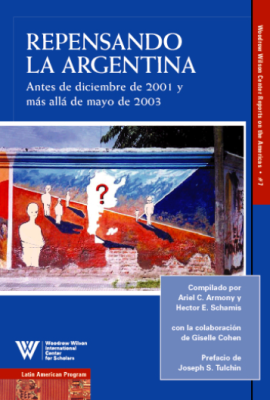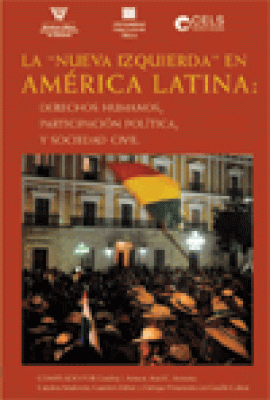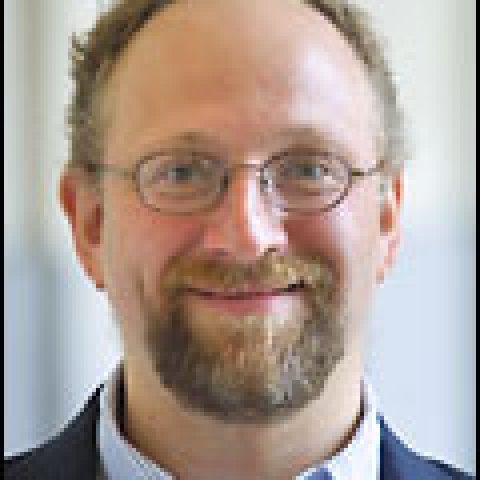Ariel Armony
Former Fellow
Professional Affiliation
University of Miami
Expert Bio
Born and raised in Argentina, I grew up used to economic and political instability. I was a teenager when the armed forces overthrew the Peronist government and launched an unprecedented program of state terror. With the return to democracy in 1983, I became actively involved in the cultural renaissance of the time as a university student, journalist, and theater director.While a graduate student in the United States, I became interested in the role that the Argentine military played in Central America during the 1970s and early 1980s. After conducting research in several countries, I wrote a book titled Argentina, the United States, and the Anti-Communist Crusade in Central America, 1977-1984. Published both in English (1997) and Spanish (1999), it was very well-received by academics and human rights practitioners throughout the Americas.Soon after, I co-edited with Thomas Walker a volume on democratic transition in Central America. Written by leading scholars, this book explored the role of popular revolt and revolution in the dramatic process of political change in this region. It analyzed the Central American transitions to democracy with an emphasis on international actors, economic processes, religion, and civil society.In the mid-1990s, I conducted some preliminary research in Argentina on collective citizen responses to police brutality under democracy. I became puzzled by some contradictory trends that I observed in several of the new civil rights groups. Even though I wanted to find that citizen participation was a democratizing force in Argentina, I was gradually persuaded by my field observations that civic involvement could have beneficial, pernicious or mixed effects on democracy. I wanted to find an answer to a seemingly simple question, but one that proved to be very complex: Does civic engagement inevitably lead to democratization? I took on an inquiry full of theoretical and empirical challenges. Later, I expanded this study to other cases and the result was a book manuscript, currently under review by a university press, that explores the uncertain relationship between civil society and democracy. At different phases in this research process, I received fellowships from the Woodrow Wilson Center, the Aspen Institute, the Inter-American Foundation, and the Mellon Foundation.My project at the Wilson Center follows up on this work. It seeks to link the academic debates on comparative democratization and civil society, examine nondemocratic orientations of civic engagement from a comparative perspective, and bridge the quantitative-qualitative divide by employing different methods and using quantitative data to shed light on qualitative evidence, and vice versa. I claim that the question of civil societyÕs Òdark sideÓ (that is, its nondemocratic face) opens a door to examine fundamental problems such as the impact of the social-historical context in the nature and effect of civic participation, and the role of citizenship rights as a resource for organization in the public sphere.
Education
Licenciatura (1989) Universidad de Buenos Aires; M.A. (1992) Ohio University; M.A. (1994) and Ph.D. (1998) University of Pittsburgh
Experience
- Assistant Professor of Government, Colby College, 1998-present
- Associate Editor, Oikos, Universidad de Buenos Aires, 1986-90
- Contributor to Argentine newspapers La Razon and Sur, and co-host of Contracrisis, Radio Belgrano, Buenos Aires, 1985-89
Expertise
Democracy and democratization; civil society; Latin American politics; U.S.-Latin American relations
Wilson Center Project
"The 'Serpent's Egg': Civil Society's Dark Side"
Project Summary
The goal of this project is to explore the "other face" of civil society, focusing on the linkage between civic engagement and nondemocratic outcomes. To do so, I examine the following cases: associational life in Weimar Germany, the anti-desegregation movement in the United States (1940s-1960s), and the "new" human and civil rights organizations in post-authoritarian Argentina during the 1990s. This study explores why civil society can sometimes contribute to undermine democracy. Thus, it is particularly relevant to newly-democratized nations. The project seeks to reexamine key assumptions that guide policy decisions of governmental and non-governmental agencies involved in programs to strengthening civil society and democracy across the world.
Major Publications
- The Dubious Link: Civic Engagement and Democratization, Stanford University Press, forthcoming
- Repression, Resistance, and Democratic Transition in Central America. (Edited with Thomas W. Walker), Scholarly Resources, 2000.
- Argentina, the United States, and the Anti-Communist Crusade in Central America 1977-1984, Ohio University Press, 1997. La Argentina, los Estados Unidos y la cruzada anticomunista en America Central 1977-1984, Editorial de la Universidad Nacional de Quilmes, 1999.
- "Argentina and the Origins of Nicaragua's Contras." Low Intensity Conflict and Law Enforcement, Vol. 2, No. 3, 1993, 434-459.
Insight & Analysis by Ariel Armony
- Past event
- Geoeconomics
From the Great Wall to the New World: China and Latin America in the 21st Century

- Publication
- Democracy
Repensando la Argentina: Antes de diciembre de 2001 y más allá de mayo de 2003 (No. 7)
- By
- Ariel Armony,
- Hector Schamis,
- and Giselle Cohen

- Publication
La "nueva izquierda" en America Latina: Derechos humanos, participacion politica, y sociedad civil
- By
- Cynthia J. Arnson,
- Ariel Armony,
- Enrique Peruzzotti,
- and 3 more

- Video
Understanding Argentina

- Video
Civil Society and Democracy

